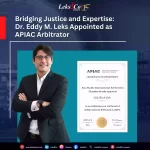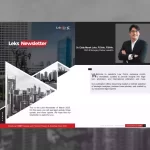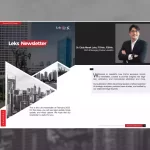Exception, in Civil Procedural Law context, is defined as objection. Exception can also be defined as defense (plea)proposed by the defendant against the plaintiff’s lawsuits material. However, the objection which is proposed in the form of exception is aimed on the formality requirement of a lawsuit, for example, if the lawsuit has a defect or formal violation which can cause the lawsuits tobe unlawful. The consequence if the lawsuit is unlawful is that the lawsuits cannot be accepted (inadmissible). Thus,the objection which is proposed in the form of exception is not aimed and not to offendthe objection of the main dispute (verweer ten principale).
Exception can be grouped as:
1. Exception of competence
a.Not authorized to prosecute in absolute term
Absolute competence is related to the absolute competence of four categories of courts (General Court, State Administrative Court, Religion Court, Military Court), and Special Court (Arbitration, Commercial Court, others)
b.Not authorized to prosecute in relative term
Relative competence is related to the jurisdiction of the court in the same category, as it is regulated in Herziene Inlandsch Reglement (“HIR”) in Article 118.
Under Article 134 HIR and Article 132 Reglement op de Rechsvordering(“
Rv
”), exception of absolute competence can be proposed by the defendant at any time during the process of examination is held at the first degree of trial until before the decision is made. Whereas,under Article 125 paragraph (2) and Article 133 HIR,exception of relative competencehas tobe proposed together with the answer of the claims against the main dispute.If that condition isnotfulfilled, it can cause the defendant’s right to propose the exception of relative competence becomesaborted. Under Article 136ofHIR, a judge has to examine and decide the exception of competence first before examiningthe main dispute. The refusal of the exception of competence is poured in the form of an interim decision (Interlocutory), whereasthe fulfillment of the exception of competence is poured in a final decision (Eind Vonnis).
2. Exception of formal requirement
a.Special power of attorney is not valid
Power of attorney can be statedinvalidfor certain reasons, for example a general power of attorney (Supreme Court Decision Number 531 K/SIP/1973), the power of attorney does not fulfill the formal conditions as regulated in Article 123ofHIR, or the power of attorney was made by an incompetent person (Supreme Court Decisions Number 10.K/N/1999).
b.Error in Persona
A lawsuit/ request can be considered aserror in personaif it is submitted by underage children (Article 1330 Civil Code (“Civil Code”)), by those who is under guardianship/curatele (Article 446 and Article 452 Civil Code), by someone that has no legal standing to submit the lawsuits (persona standi in judicio).
c.Nebis in Idem
Nebis in Idemis a case that has the same parties, the same object, and the same material matter so that the case cannot be reexamined again.
d.The lawsuits is premature
A lawsuit is called premature if there is a legal factor that can suspend the lawsuits, for example aninheritance lawsuit is called premature if the ancestor is not dead.
e.Obscuur Libel
Obscuur Libelissimply referred as “obscurity”. The obscurity condition is in the:
1.Legal basis of the lawsuits;
2.The obscurity in the object of the lawsuits, for example in the land case, there is noinformation on the size of the land, the location of the land, orthe border of the land.
3.Obscurity on the petitum, or
4.There is a contradiction between the posita and petitum.
Under Article 125 paragraph (2) jo. Article 133 and Article 136ofHIR,other exception and exception of relative competence can only be proposed in a certain time, at the time of answer of a claim of the main dispute. If that condition isnotfulfilled, it can cause the defendant’s right to propose the exceptiontobecome aborted. Under Article 136 of HIR the settlement of exception except for the exception of competence should be examined and be decided together with the main dispute. Accordingly, considerations and decisions regarding the exception and main dispute, are poured together entirely in the final decision.If the exception is granted then the decision is a negative decision, whereas if the exception is rejected then the decision is a positive decision based on main dispute.
Maria Amanda







